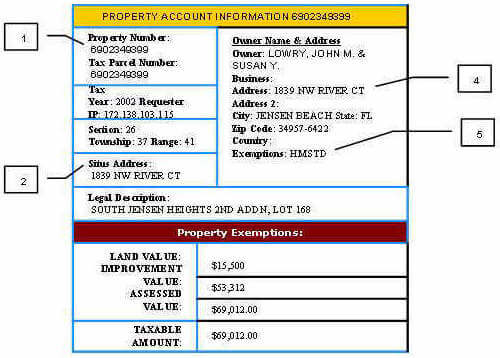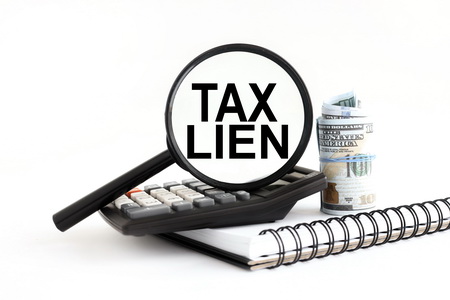All Categories
Featured
Table of Contents
In lots of cases, you will need to outbid various other capitalists by offering to pay a higher premium (tax lien and deed investing). This costs is normally less than the actual amount of taxes owed, however it depends on the financier to determine if the risk deserves the collection incentive. In a lot of areas, real estate tax are around one percent of the residential property's worth

Tax obligation lien financiers make their cash on the passion payments they collect when the house owner pays back the tax obligations they owe. In some areas, these rate of interest prices are as high as 18 percent, which is extra than the typical credit scores card rate of interest. Homeowner can pay what they owe at one time, or they can take place a repayment strategy ranging from one to three years.
Tax Lien Redemption Period
In the above example, someone with an outstanding tax financial debt of $4k (two years of back tax obligations) would be providing a tax lien owner with possibly up to $720 in rate of interest payments, dealing with the 18 percent rates of interest we mentioned earlier. Among the best advantages to tax obligation lien investors is the prospective to acquire a new home for their genuine estate portfolio, without needing to pay its market price.

It's a win-win circumstance for the tax lien capitalist. There are some cons to tax lien investing.
As soon as the lien is paid, the financier needs to move on and look for a new financial investment. Naturally, if the homeowner is still in default, the lien owner will certainly obtain the residential or commercial property, which could become a recurring income. Somebody who buys a tax lien might find themselves knotted with other liens on the building, specifically if they wind up asserting the building in case the financial debt goes unsettled.
This might cause great deals of legal battles, which is why it is very important to function with legal representatives and tax consultants who understand things like action vs title. and can aid with executing due persistance on a residential property. The legislations around tax obligation lien investing (and associated issueslike foreclosing on renters) are not consistent across states that use financiers the ability to join a tax lien sale.
Given that tax liens are often cost public auction, contending bidders will certainly bid up the costs and bid down the rate of interest that can be gathered on the unpaid tax obligations. The winner of the public auction will certainly be the actual estate investor that is paying the greatest premium and getting the most affordable rates of interest in return.
Is Buying Tax Lien Certificates A Good Investment
In this blood vessel, tax lien investing is a little bit a lot more sport-like than typical easy means of earning revenue. The first thing you'll intend to do is obtain knowledgeable about the area you're taking into consideration in regards to the genuine estate market. Remember that one benefit of becoming a lienholder is accumulating the residential or commercial property if the financial debt goes overdue, so you will need to understand where that home is.
When you have actually determined these information out, you need to contact your regional area treasurer's office to figure out when and where the next tax obligation lien auction is being held. These auctions are frequently kept in person, yet in today's day and age, much of have transitioned to on the internet locations.

Many local documents publish these checklists each year or semiannually. This can offer you a great concept regarding upcoming opportunities. Keep in mind that real estate tax are normally one percent of the residential property value, but unpaid taxes building up over a number of years could be a more sizable amount. You can take advantage of your very own cash money books or discover choices like property crowdfunding to acquire the resources you need.
Is Buying Tax Liens A Good Investment
it has actually the included perk of acquiring the building if the financial obligation remains overdue. While it can be a lucrative possibility for the capitalist, it does require some strategic maneuvering. Tenants and residential or commercial property owners do have lawful securities that make tax lien spending an extra involved procedure than simply bidding to buy a financial obligation and waiting to gather the repayment.
Investing in tax liens involves purchasing a lawful insurance claim on a residential or commercial property because of unpaid home taxes. This approach of investing has obtained appeal as a result of its potential for high returns with relatively reduced initial resources. Tax obligation liens are typically offered at auctions, and the procedure can vary depending on the place.

Investors seek tax liens for numerous reasons: 1. Reduced Initial Investment: Tax obligation lien investing usually requires a tiny amount of money to start, making it accessible to a large range of financiers. Some tax obligation liens can be acquired for as little as a few hundred dollars. 2. High Returns: The rates of interest on tax obligation liens can be dramatically more than typical investment returns.
Tax Lien Investing
Residential property Acquisition: If the building owner fails to pay the overdue tax obligations and rate of interest within the redemption duration, the investor might have the right to confiscate and get the property. When financiers purchase a tax lien, they pay the past due tax obligations on a residential property and obtain a tax lien certification.
There are 2 prospective results: 1. Repayment by the Property Owner: The property proprietor pays back the overdue tax obligations plus passion within a specific period, and the financier receives the payment with rate of interest. This is the most common end result. 2. Foreclosure: If the property owner does not pay back the tax obligations within the redemption period, the financier can initiate repossession process to acquire the home.
The self-directed IRA purchases the lien certificate and pays associated costs. Tax Lien: The government offers a lien on the property due to unpaid taxes.
Investing In Tax Liens In Texas
Tax obligation Action: The federal government markets the actual act to the building at auction. According to the National Tax Obligation Lien Organization (NTLA), 36 states and 2,500 territories within the United States allow for the sale of tax liens, while only 31 states allow tax deed sales.
Table of Contents
Latest Posts
Delinquent Tax Sales
Delinquent Property Tax Auction
Tax Overages Blueprint
More
Latest Posts
Delinquent Tax Sales
Delinquent Property Tax Auction
Tax Overages Blueprint